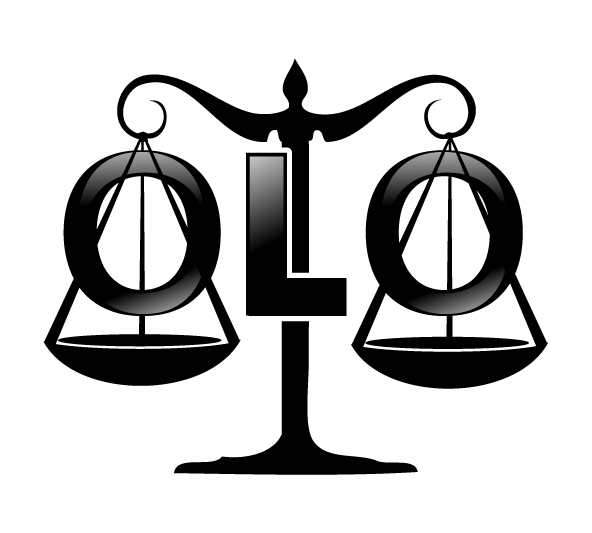Having an estate plan is an essential part of securing your assets and providing for your family’s future. It involves creating a comprehensive plan that considers various circumstances, including incapacitation and death. While a will is an important component of estate planning, it is just the beginning.
Common Misconceptions About Wills
Many people mistakenly believe that a will is sufficient to protect their assets and provide for their loved ones. However, there are several common misconceptions about wills that can lead to unintended consequences.
One misconception is that a will avoids probate. Probate is the legal process through which a deceased person’s assets are distributed according to their will or state law. Contrary to popular belief, having a will does not allow your estate to bypass probate; a will must go through probate, which can be time-consuming and costly.
Another misconception is that a will covers all assets. While a will can address assets that are solely in your name, it may not cover assets held jointly with others or those that have designated beneficiaries, such as life insurance policies or retirement accounts. It is important to understand the limitations of a will and consider additional estate planning strategies to ensure all your assets are protected.
Understanding The Limitations Of A Will
One key limitation of a will is that it only takes effect upon your death. This means that it does not address what happens if you become incapacitated or unable to make legal decisions before you pass away. To address this, it is essential to have documents such as a durable power of attorney and a healthcare proxy in place.
A durable power of attorney allows you to appoint someone you trust to make financial and legal decisions on your behalf if you become incapacitated. This ensures that your affairs are managed according to your wishes, even if you are unable to do so yourself. On the other hand, a healthcare proxy grants someone the authority to make medical decisions for you if you are unable to communicate your wishes.
The Benefits Of A Comprehensive Estate Plan
A comprehensive estate plan offers several benefits that go beyond what a will can provide. It allows you to have control over your affairs during your lifetime, even in the event of incapacity, and ensures a smooth transition of your assets after your death.
One of the key benefits of an estate plan is that it can help minimize the potential for family disputes and legal challenges. By clearly outlining your wishes and distributing your assets in a structured manner, you can reduce the likelihood of conflicts among your loved ones.
Additionally, an estate plan can provide for the financial needs of your family, including minor children or adult dependents. It allows you to designate guardians for your children and set up trusts to manage their inheritances until they reach a certain age or milestone.
Components Of A Comprehensive Estate Plan
A comprehensive estate plan consists of several important components that work together to protect your assets and provide for your loved ones. These components may include:
- Will: A will is a legal document that outlines your instructions for the distribution of your assets after your death. It allows you to designate beneficiaries, appoint an executor, and specify any other wishes you may have.
- Trusts: Trusts can be valuable tools in estate planning as they offer flexibility and control over the distribution of assets. They can help minimize taxes, protect assets from creditors, and provide for specific needs, such as special needs trusts for disabled beneficiaries.
- Power of Attorney: A power of attorney allows you to appoint someone to make financial and legal decisions on your behalf if you become incapacitated. This ensures that your affairs are managed according to your wishes and can prevent the need for court-appointed guardianship.
- Healthcare Proxy: A healthcare proxy grants someone the authority to make medical decisions for you if you are unable to do so. It ensures that your healthcare preferences are honored, which can provide peace of mind knowing that someone you trust will advocate for your best interests.
- Beneficiary Designations: Designating beneficiaries for assets such as life insurance policies, retirement accounts, and investment accounts is an important part of estate planning. These assets will pass directly to the designated beneficiaries, bypassing probate.
Trusts And Their Role In Estate Planning
Trusts serve as a valuable tool in estate planning, offering numerous benefits. These legal entities act as custodians of assets and oversee them on behalf of chosen beneficiaries. There are two primary types of trusts: revocable and irrevocable, each with its own set of regulations concerning modifications.
One notable advantage of utilizing trusts is their ability to bypass probate proceedings entirely. By transferring assets into a trust, they can be directly passed on to designated beneficiaries without the need for lengthy and costly probate processes. This not only saves time but also reduces the financial burden associated with such procedures.
Furthermore, trusts provide an added layer of asset protection, particularly when employing irrevocable trusts. Placing assets within an irrevocable trust renders them untouchable by creditors or potential legal claims that may arise.
Trusts also facilitate efficient management of assets for individuals who may lack the capacity to handle significant sums independently. For instance, establishing a trust allows for long-term care provisions for disabled children or ensures responsible administration of inheritances until minor children reach adulthood.
Estate Taxes And Minimizing Tax Liabilities
Estate taxes can significantly impact the value of your estate and the amount that is ultimately passed on to your loved ones. However, with proper estate planning, it is possible to minimize tax liabilities and ensure that more of your assets are preserved for your beneficiaries.
One common strategy for minimizing estate taxes is to make use of the annual gift tax exclusion. This allows you to gift a certain amount of money or assets to individuals each year without incurring gift taxes. By strategically gifting assets over time, you can reduce the overall value of your estate and potentially lower your tax burden.
Another strategy is to establish a charitable trust or foundation. By donating assets to a charitable organization, you can not only support causes you care about but also reduce your taxable estate. Charitable giving can provide significant tax benefits and leave a lasting legacy.
Call Osenton Law To Create Your Comprehensive Estate Plan Today!
Whether you have a will or not, you should have a comprehensive estate plan in place to ensure that your assets are distributed according to your wishes, your loved ones are protected, and your legacy is preserved. If you have not yet created an estate plan and would like to learn more about your estate planning options, please contact Osenton Law today to schedule a Effective Strategy Meeting and learn more about how we can help.

